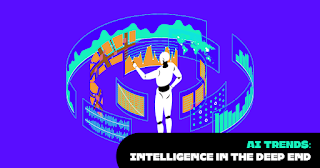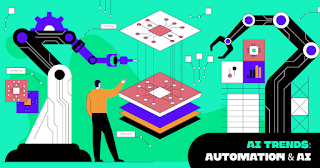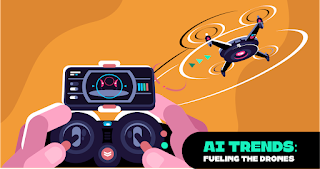Artificial Intelligence propels you forward
Artificial Intelligence propels you forward
Digitization is the new mantra of the 21st century. Steadily but surely, every aspect of man’s life is getting digitized. The latest feature of the process of digitization is the ultra hi-tech concept of artificial intelligence. Artificial intelligence is complicated in the behavior and constitutes a very complex mixture of computer science, mathematics and other complicated methodologies of sciences.
Artificial Intelligence’s complex programming enables the machine to perform critical operations in an easy way. The task performed with the help of AI resembles the same job of the human being with better performance than human beings.
In the last 50 years, machines have become a lot smarter. Once a radical concept, AI now has more practical applications in our day-to-day lives. The AI powered technologies today play a vital role in marketing, finance, data analysis, healthcare, and much more.
With the help of AI systems, it can be predicted what you are going to be typing into a search engine. Personalized ads are served based on your purchase and browsing history and behavior. From recommending new albums and music playlists curated from your favorite songs to helping doctors more quickly diagnose and treat illnesses in patients, innovations in the AI space have yielded benefits across many industries.
Conversations on AI is a Haptik initiative for the world's leading minds to exchange thoughts around the business of AI. Here you find deep insights from industry leaders and key players throwing light on how to make Processes more efficient, forecasts more accurate, and convenient technologies more widely available than ever with the help of ai automated intelligence.
Advantages of Artificial Intelligence
Let’s explore a few of the advantages that artificial intelligence systems offer and how they make our lives easier.
Increased Efficiency
AI systems enable humans to be more efficient and they can be successfully leveraged to either perform small, repetitive tasks faster, or to complete much more complex tasks without being bound by human limitations. It’s often used to perform mundane and time-consuming tasks. It can work alongside other technologies to process large amounts of complicated data and deliver actionable insights efficiently and accurately.
2. Improved Workflows
AI automation’s practical applications for improving human workflows have transformed the way people work in professions like education, media and entertainment, and law enforcement. For example, by converting the spoken word to text, AI can easily produce transcripts of any audio and video.
Speech recognition systems have done wonders and this magic is only going to continue as the science improves and the algorithms are trained further to streamline workflows.
3. Lower Human Error Rates
AI systems do not suffer from fatigue, which humans are bound to feel as the human brain’s focus tends to slip when they are engaged in one task for long. It has been noted that people are more likely to make poor decisions and become vulnerable to mistakes when they are tired. Repetitive jobs are especially prone to human error as humans lose concentration after a while. But AI systems are programmed to function non-stop without errors.
The informative and astute writing available on Conversation throws ample light on the latest happening and prevalent requirements in the Artificial Intelligence industry. Conversation is a platform available on Haptik in collaboration with Jio.




Comments
Post a Comment